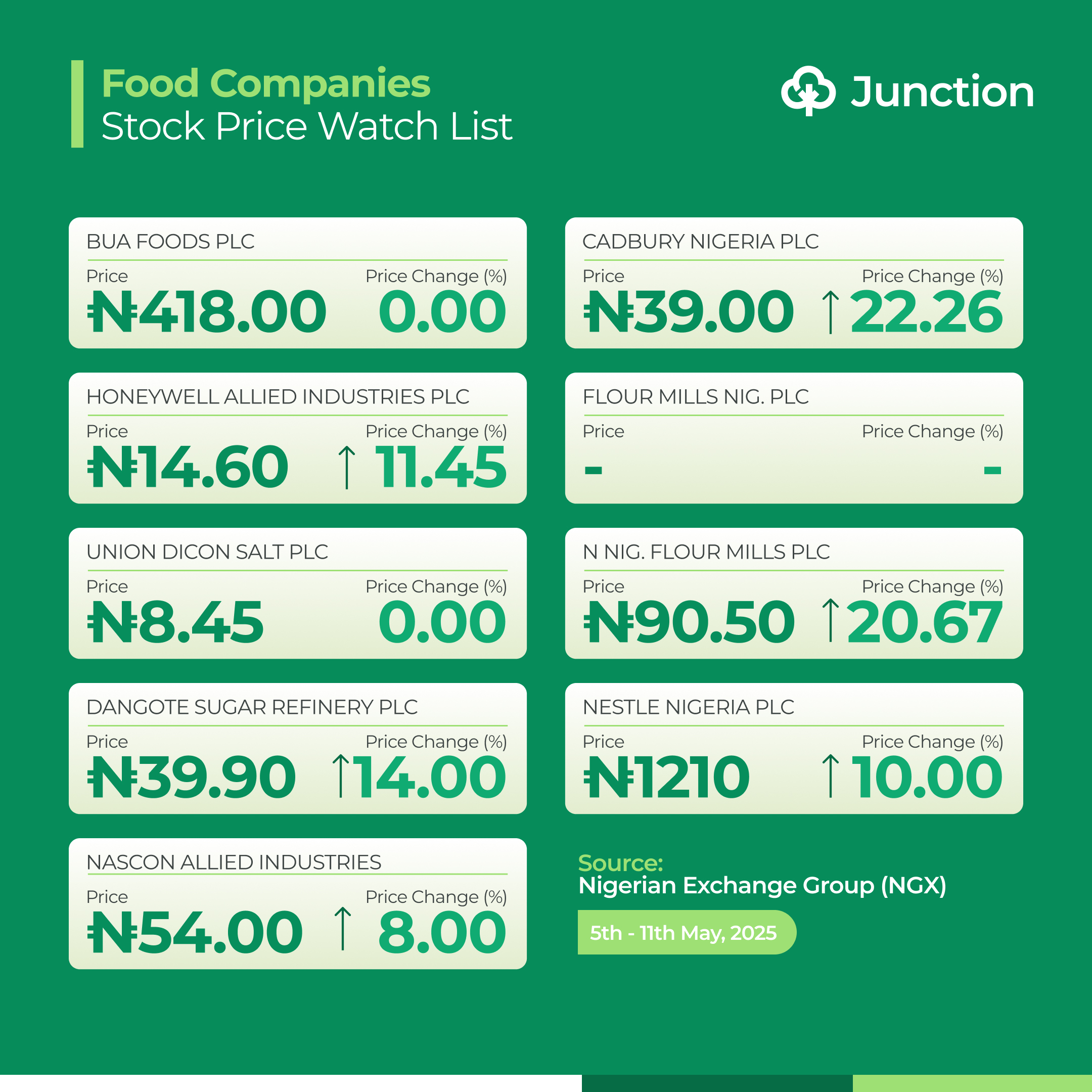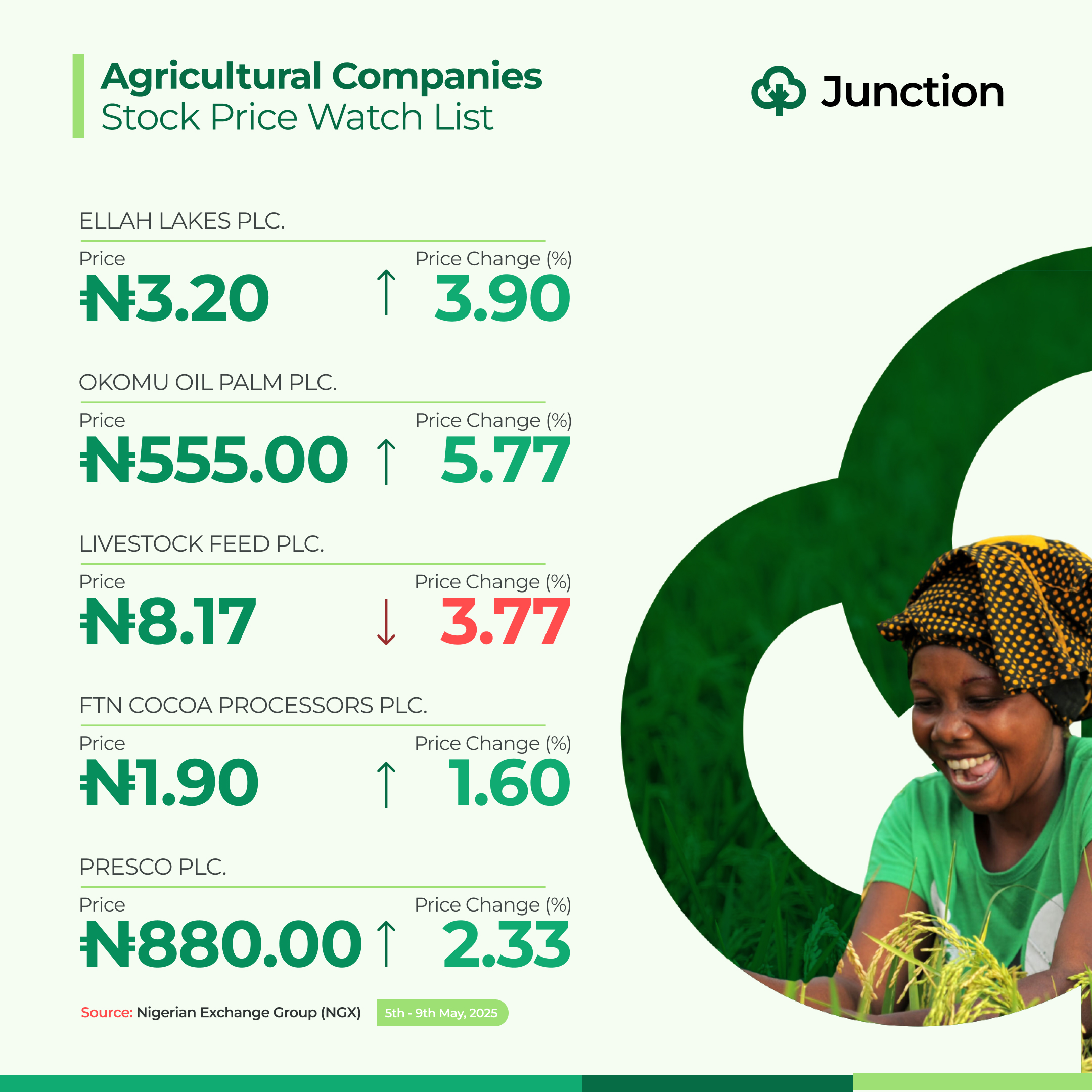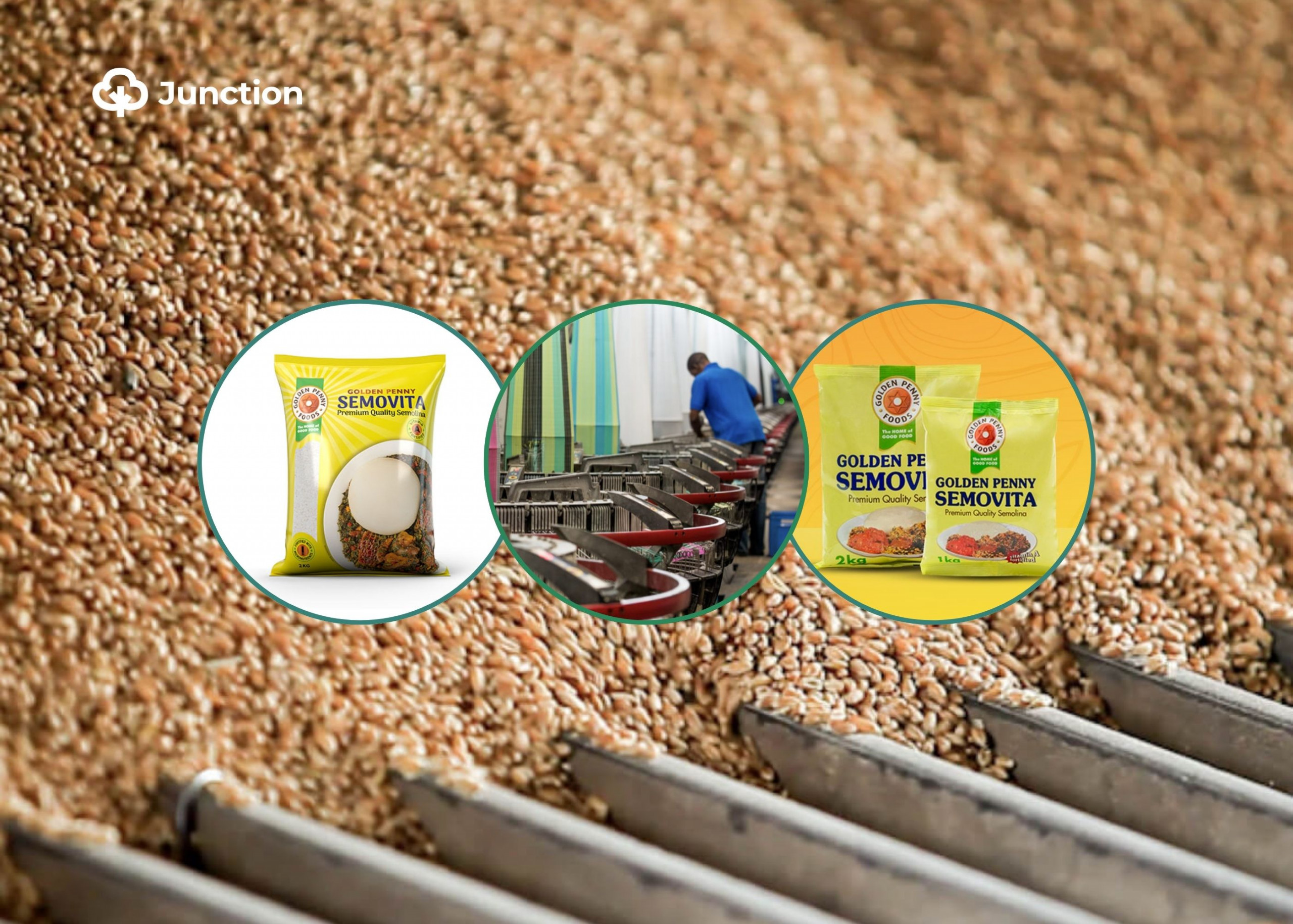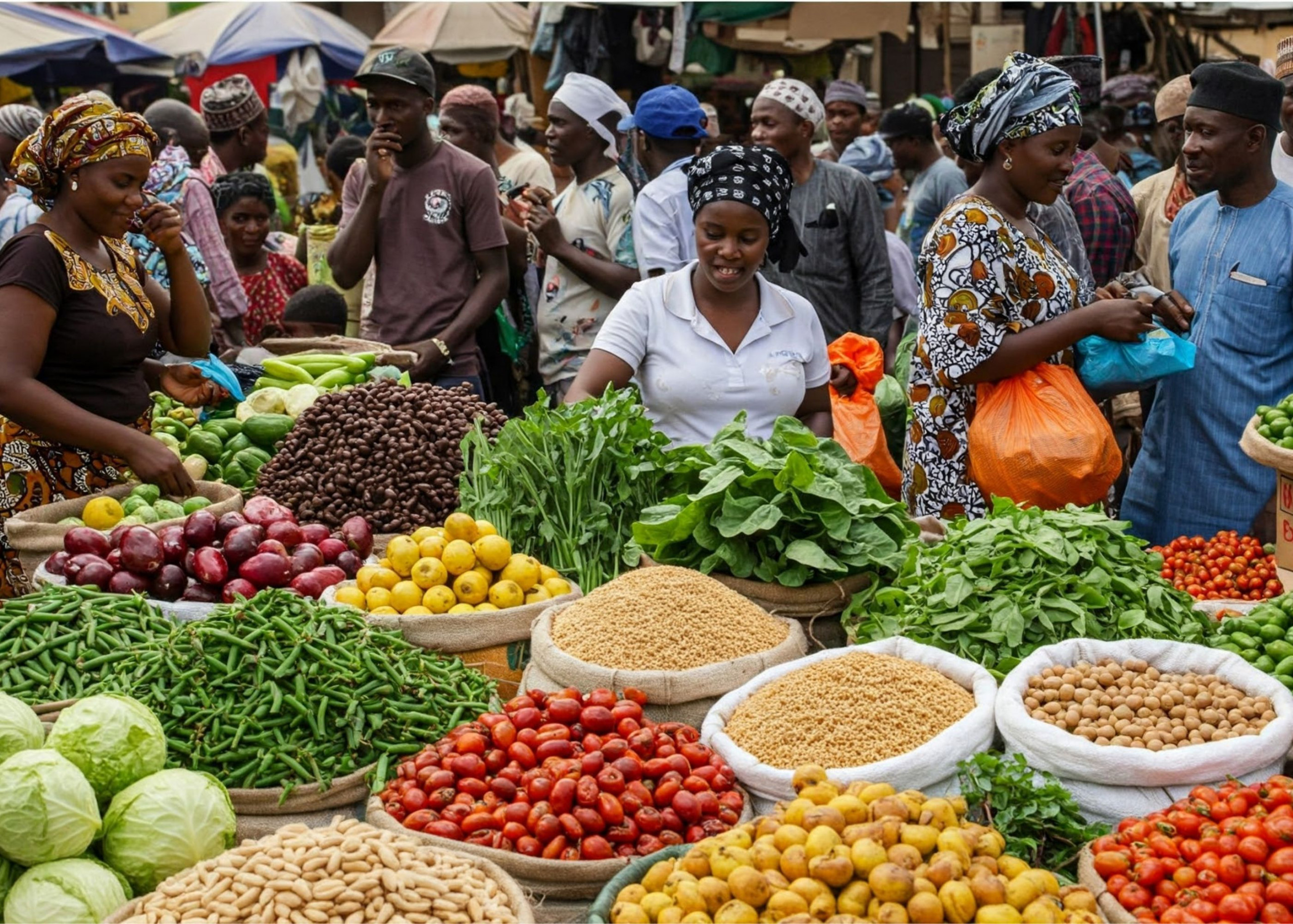It is just May 2025, and Nestle Nigeria’s stock price has already appreciated by 38.29% on the Nigerian Stock Exchange (NGX) platform. The food and beverage maker was just one of the many winners in its sub-sector category last week.
Cadbury Nigeria, which is a direct competitor as it also makes food and beverage products from cocoa, was the week’s top gainer. Its stock price went from ₦31.9 to ₦39, representing a 22.26% surge in the trading period. In terms of year-to-date (YtD), the value of its shares are currently 81% higher.
Golden Penny Semovita makers, Northern Nigeria Flour Mills (NNFM), also reported a remarkable week as its stock went up by 20.67% and now trades at 92.5% above where it began the year.

Dangote Sugar also posted an impressive recovery from last week’s loss on the exchange platform, while Honeywell Allied Industries’ stock value continued its bullish run, reaching 91.8% stock appreciation YtD.
Our first quarter (Q1) star performer, Union Dicon Salt, maintained its value over the week as BUA Foods’ stock price also remained unchanged.
Livestock Feeds reported a stock price drop of 3.77% last week, marking consecutive declines in its share value since mid-April. The company’s profit has been nosediving due to increasing input costs like maize, soybeans, and other grains.
Meanwhile, Okomu Oil Palm saw its first gain in stock value of the quarter, after several weeks at a constant price (and even a decline in the first trading period of May), with its shares rising by 5.77%.
Ellah Lakes’s stock price also recovered from its first quarter loss of 0.98% with its last week rise of 3.90%, and Presco recorded a 2.33% appreciation. FTN Cocoa Processors continues to trade lower than it began the year, but it rose by 1.60% last week.

The strong performance of key food and agriculture-related stocks on the Nigerian Exchange reflects growing investor confidence in the sector, but it also carries deeper implications for consumers, food security, and the broader economy.
While companies like Nestle, Cadbury, and NNFM celebrate stock market gains, rising input costs and supply chain pressures—evident in Livestock Feeds’ losses—highlight persistent challenges for producers and farmers.
For consumers, these market dynamics may translate to higher food prices if companies pass on increased costs, putting pressure on household budgets. For farmers, especially those supplying grains, cocoa, and palm oil, rising demand from processors presents both opportunity and risk—opportunity in higher sales potential, and risk if inflation and input costs outpace their earnings.
Ultimately, a resilient, well-capitalised food sector is essential for national food security and economic stability. Continued investment in local sourcing, processing, and input efficiency will be critical to ensuring that market gains benefit not just shareholders but also farmers’ livelihoods and the nutritional well-being of Nigerian consumers.



